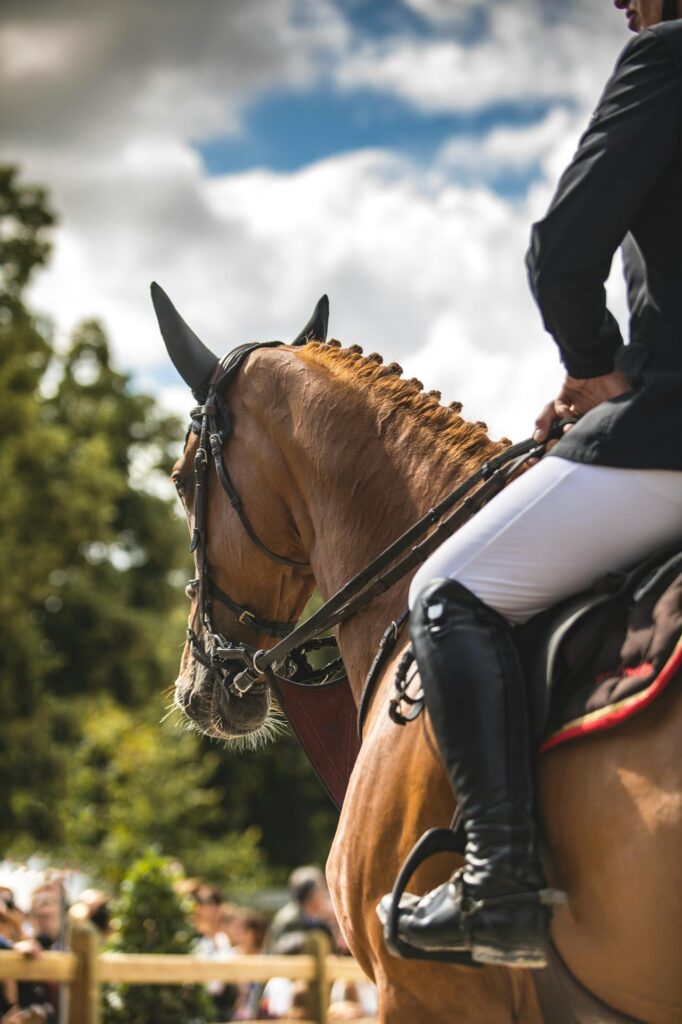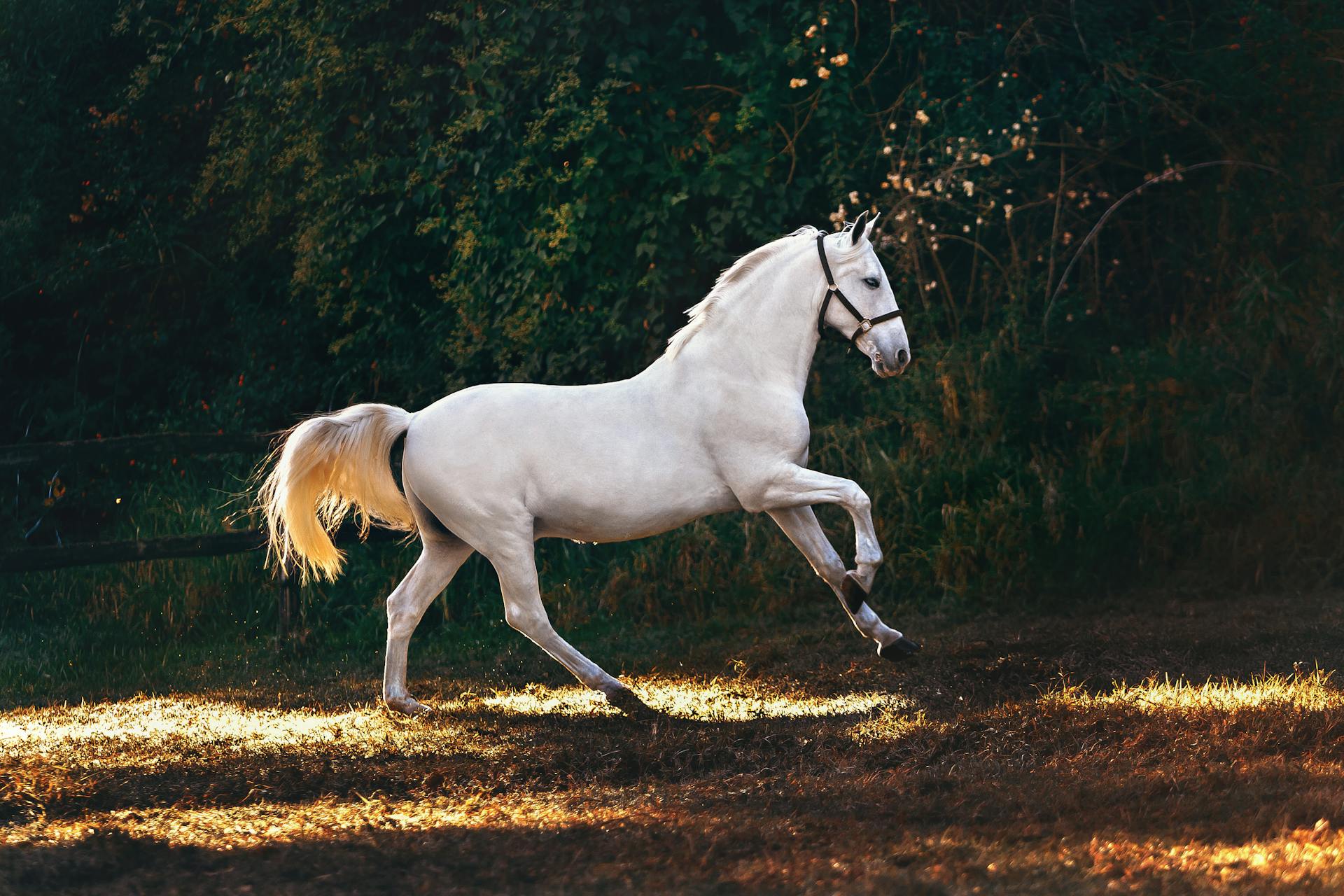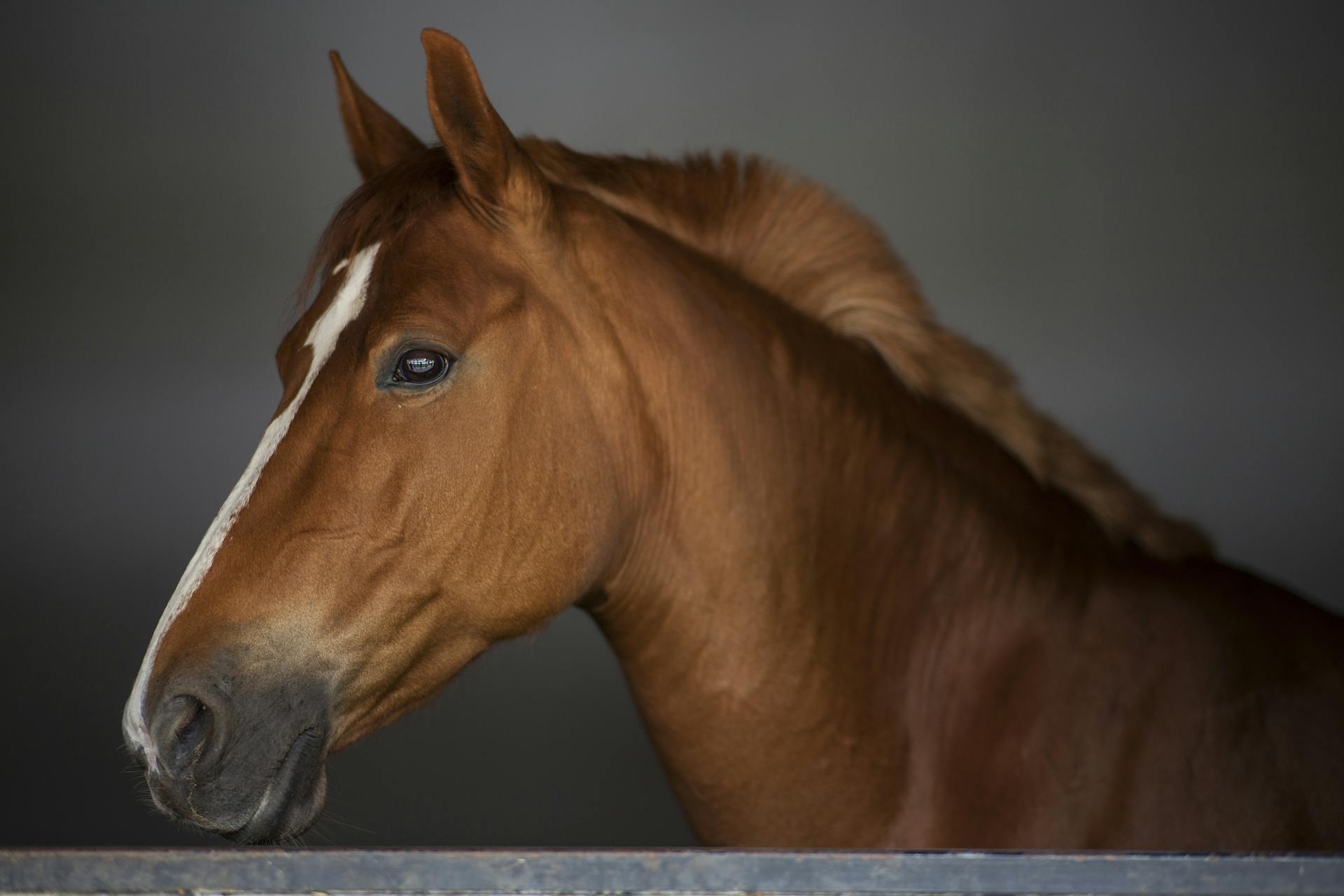On Horseback
INterview with Vanessa huber | 30.09.2025

Once “infected,” the love for horses usually lasts a lifetime. OPMG Equestrian brings horse owners and their noble animals together with excellent staff. Vanessa Huber knows what matters – and why horses sometimes even cross the Atlantic.
Many of her clients, especially in America, own their own equestrian facilities, are active in international top-level sport, or sponsor major tournaments. Vanessa Huber herself has been fascinated by these noble hoofed animals since early childhood and knows what counts for both horses and their owners – whether in breeding, professional sport, or leisure riding. She also draws key lessons for recruiting from her time in the stable – because when it comes to communication, horses are remarkably direct.
How would you explain “equestrian” to someone completely new to the world of horses?
VAnessa Huber: Equestrian is simply the English and internationally used term for equestrian sports. But it doesn’t just refer to sport in the narrow sense – it encompasses the full range of interaction with horses.
What connects OPMG with equestrianism?
Vanessa Huber: Many of our clients, especially in the U.S., are active riders, own several horses, or have private equestrian facilities connected to their estates. They are always looking for exceptional employees who have a real feel for horses. In addition to top-level care, it’s crucial to be able to “read” these highly sensitive beings.
„A ‘yes’ is a ‘yes’, and a ‘no’ is a ‘no’. There are no hidden agendas, no subtle messages, no untruths.“

What can we learn from these sensitive animals – in what ways can horses serve as role models?
VAnessa Huber: Definitely in terms of communication. A horse always responds clearly and immediately. A yes is a yes, and a no is a no. There are no hidden agendas, no subtle messages, no untruths. We humans often say “yes” when we really mean “no” – out of politeness or the desire to meet others’ expectations. But in recruiting, transparency is extremely important – both with clients and candidates. Admittedly, some people are surprised at first, but then very grateful that we communicate so clearly and openly.
Have you taken anything from equestrian sports into your everyday life?
VAnessa Huber: Yes, working with horses has taught me a lot about body language. You also learn to be more present in the moment, instead of trying to do ten things at once while mentally jumping ahead to the next task. Every day we slip into various roles, trying to meet expectations from family to work. Horses, on the other hand, live completely in the now. Working with these sensitive animals has also taught me to stay calm and composed in difficult situations.
How long have you been involved in equestrianism, and what is the personal appeal for you?
VANESSA Huber: I was obsessed with horses even as a small child. My family had to stop at every pasture and every grazing horse during walks. I properly entered the world of horses at about eight years old when I had my first lunge lesson. Even though my professional life later required a break from riding, the passion never goes away. Once you catch the horse virus, it never leaves you.
„Competition horses are flown from Europe to the U.S. in special cargo planes.“
Interaction with animals is especially valuable for children. What’s the ideal age to start riding?
Vanessa Huber: These days, children can be introduced to horses at quite a young age in a playful and educational way. There are far more programs now than when I was a child. A lot has developed in this area over the years – and that’s a very good thing.
What makes a good riding instructor?
VANESSA Huber: Besides years of personal riding experience and expertise, they also need solid teaching skills. It’s also important that they can assess the training level of each horse. In general: every rider and every horse is unique. You meet a wide variety of personalities. A good instructor is able to adapt to these individual needs and expectations.
What should you look for when choosing the right stable?
VANESSA Huber: When I enter a stable, my first glance goes to the horses. Are they well cared for and in good condition? Do they look alert? What condition are their hooves in? What does the feed look like? How does the stable appear overall? Is it clean and well-maintained? If I want to board my own horse there, I also ask about access to daily turnout in the paddock or pasture.
Owning a horse can require a significant financial and time commitment. What’s the general range – are there limits?
VANESSA Huber: No, there are virtually no upper limits here. Starting with the purchase of the horse, the necessary budget depends on your goals: Do I want to ride casually in my free time or compete in tournaments? There are wonderful family and leisure horses that are quite affordable, and then there are high-end sport horses from prestigious bloodlines that can cost billions of euros. The range of boarding options is just as broad. Do I need an indoor arena for winter or is an outdoor riding ring enough? Do I want my horse in a box stall or a group turnout system? What kind of feeding is included? Do I want to have my horse professionally trained, or do I handle everything myself? Do I want to help out in the stable and muck out myself? There are options for every need and every budget. Time is also a major factor. A horse must be cared for and exercised every single day.
You mentioned the U.S. earlier. Is equestrian sport particularly prominent there?
VANESSA Huber: Florida is home to the international epicenter of equestrian sport: Wellington. Many of our clients are based there year-round and of course compete in the annual Winter Equestrian Festival. It’s also a major destination for European equestrians. Of course, a transatlantic journey involves significant financial and logistical effort. Competition horses are flown from Europe to the U.S. in special cargo planes. That’s only possible with the right support team and financial resources – not to mention a high level of riding skill.

Sie können OPMG telefonisch unter +49 89 41 42 43 99-0
oder per E-Mail unter office@opmgstaff.com erreichen.
Zu den Kund:innen zählen weltweit führende Unternehmer:innen und Unternehmen, Aristokrat:innen, Ikonen aus Sport und Lifestyle sowie Entscheidungsträger:innen von Weltrang. Das Team ist international und länderübergreifend tätig und in Europa zu Hause – bald auch in Zürich in der Schweiz, daran arbeitet man gerade. OPMG arbeitet ausschließlich erfolgsbasiert, ohne Vorauszahlung, versteckte Kosten oder Ähnlichem. Für die Kandidat:innen ist die Vermittlung durch OPMG immer kostenlos.
Kontakt
Let’s start building connections
Für andere zu sorgen, liegt in unseren Genen. Eine:r unserer Expert:innen wird sich in Kürze persönlich bei Ihnen melden.